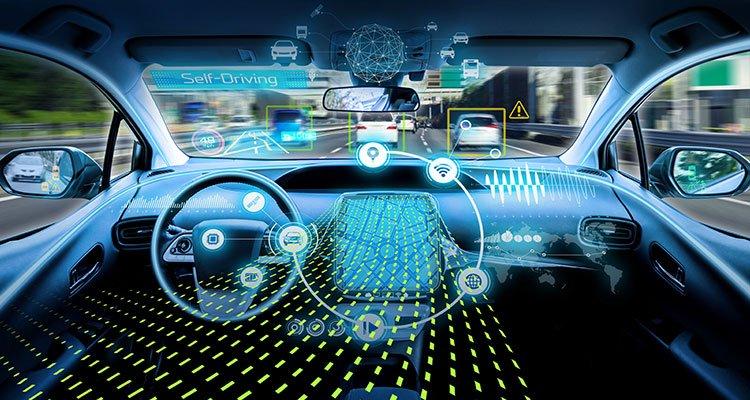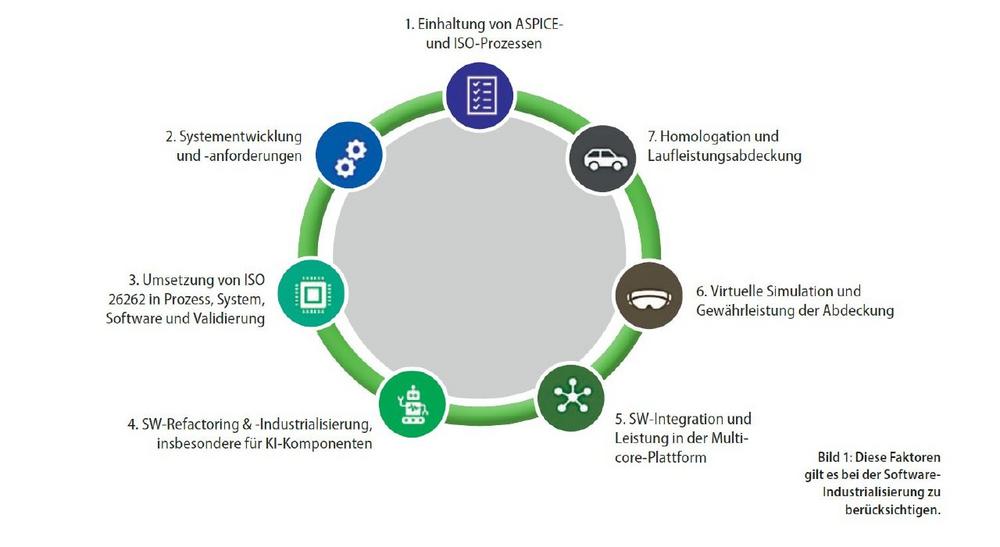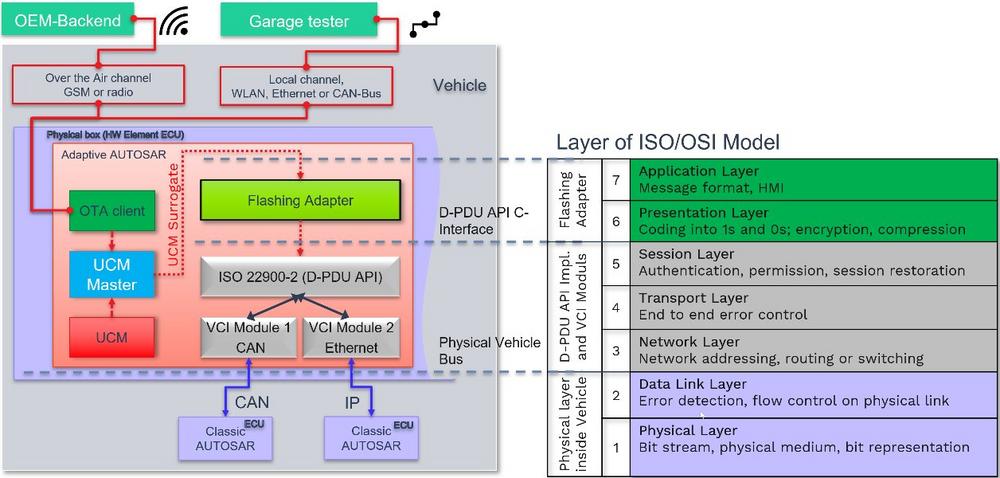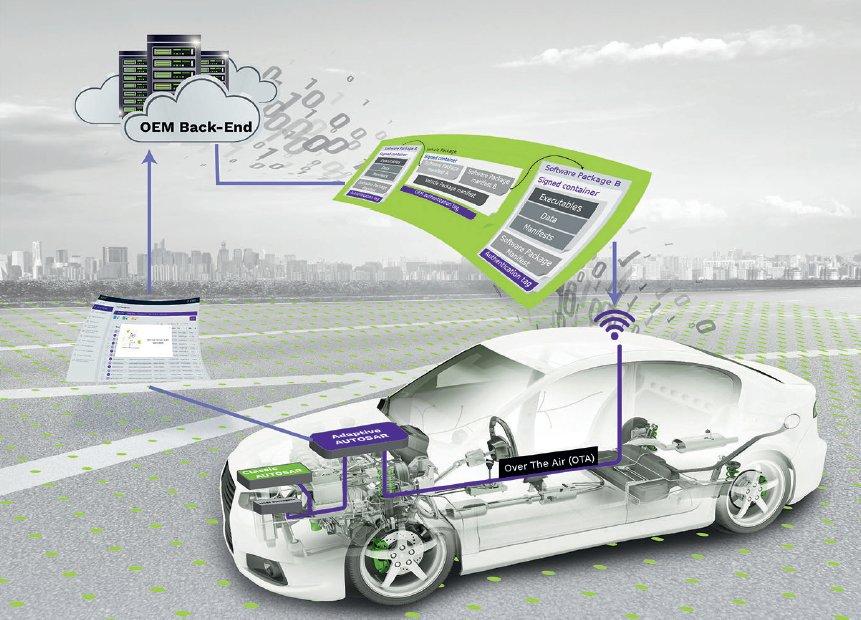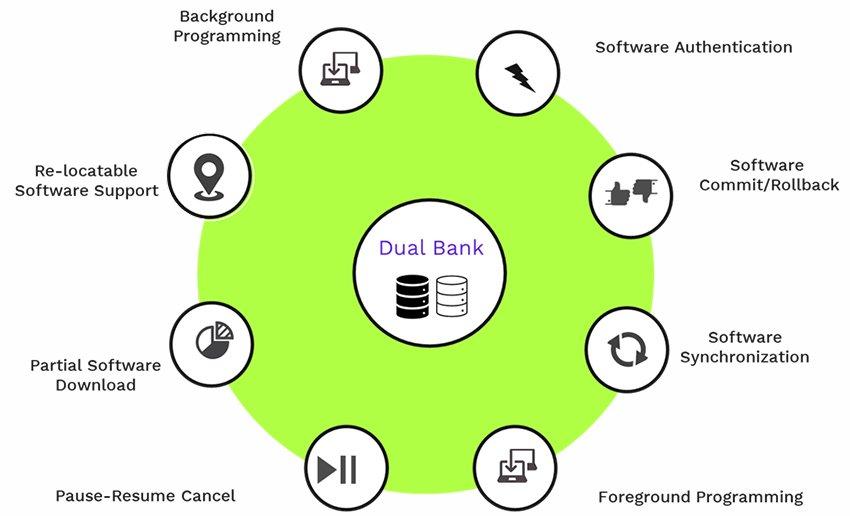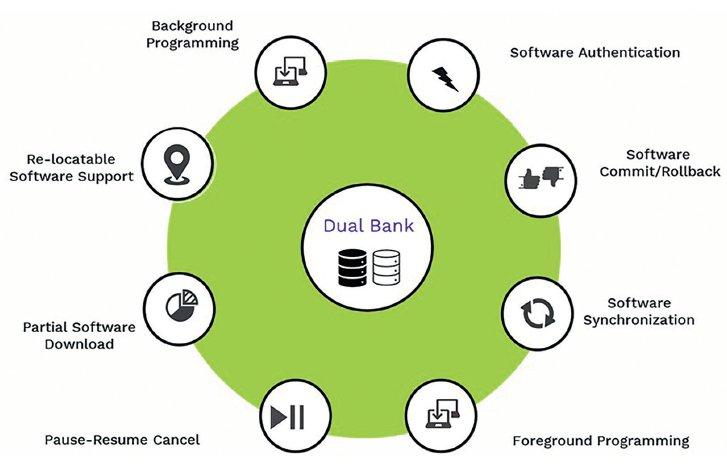-
Verdeckte Schwachstellen erkennen und ausmerzen
Unified Diagnostic Services ist ein Standard, der zur Übertragung von Daten zu und von Steuergeräten zum Einsatz kommt. Der OBD-II-Port ist zu Diagnosezwecken mit einem oder mehreren Kommunikationsbussen verbunden. Der leichte Zugriff auf den OBD-Port ermöglicht es, böswillige UDS-Pakete zu versenden, um die Schwachstellen in Steuergeräten auszunutzen. Mit einem Fuzzing-Konzept sollen ungültige Daten oder verdeckte Schwachstellen erkannt werden. Heutzutage integriert die Automobilindustrie zahlreiche neue Funktionen in vernetzte Fahrzeuge, und es gibt eine zunehmende Interaktion zwischen verbundenen ECUs über bordeigene Kommunika tionsprotokolle. Dieser enorme Datenfluss muss im Sicherheitskontext validiert werden, um zu überprüfen, ob irgendwelche potenziellen Schwachstellen zu Beeinträchtigungen bei Kernfunktionen führen können. Um diese Echtzeit-Schwachstellen über das CANUDS-Protokoll zu finden,…
-
KPIT als Leader gelistet in der Everest Group PEAK-Matrix Bewertung für autonome, vernetzte, elektrische und shared mobility (ACES) Automotive Engineering Services 2021
Das Leader-Ranking ist Audruck der weitreichenden Visionen und Fähigkeiten von KPIT und seiner Marktstellung Die Bewertung umfasste 23 Unternehmen aus der Mobilitätsbranche, die als Leader, Hauptakteure oder Aspiranten eingestuft wurden Die Leader-Bewertung unterstreicht unsere Vision, die Mobilität für eine sauberere, intelligentere und sicherere Welt zusammen mit dem Ökosystem neu zu denken und zu gestalten KPIT Technologies, führender unabhängiger Softwareentwicklungs- und Integrationspartner für die Automobil- und Mobilitätsindustrie gibt bekannt, dass es in der PEAK-Matrix-Bewertung der Everest Group für autonome, vernetzte, elektrische und shared mobiliy (ACES) im Bereich Automotive Engineering Services 2021 als Leader klassifiziert wurde. Dieses jährliche Assessment durch die Everest-Gruppe bewertet globale Engineering-Unternehmen objektive nach der Gesamtfähigkeit und Marktbedeutung.…
-
KPIT tritt dem Autonomous Vehicle Computing Consortium bei, mit dem Ziel Erkenntnisse und Expertise bei der Softwareentwicklung für autonomes Fahren beizusteuern
KPIT schließt sich mit führenden Unternehmen aus der Mobilitätsbranche zusammen, um Best Practices in die Entwicklung komplexer Software für autonomes Fahren einzubringen KPIT bringt umfangreiche praktische Erfahrungen in der Entwicklung von Produktionssoftware für autonomes Fahren mit Das Konsortium bemüht sich darum, die besten Lösungen für kritische Hardware- und Software-Plattformen zu finden KPIT Technologies, ein führender unabhängiger Softwareentwicklungs- und Integrationspartner für die Automobil- und Mobilitätsindustrie, hat seinen Beitritt zum Autonomous Vehicle Computing Consortium™ (AVCC) bekanntgegeben. Dies ist Ausdruck unseres Bestrebens, gemeinsam mit anderen weltweit führenden Unternehmen der Mobilitätsbranche den Weg in die Zukunft des autonomen Fahrens anzuführen. KPIT schließt sich führenden OEMs, Tier 1s und Halbleiterunternehmen wie GM, Toyota, Subaru, Veoneer,…
-
Software Integrator KPIT seeks for German partners
With a focus on the automotive and mobility sectors, the Indian technology company KPIT wants to expand its position in Germany. When it comes to software development, a number of aspects are particularly important to the company. This article was originally published in Automobilwoche, It is a summary of an interview of Mr. Kishor Patil, Co-Founder, CEO & MD, KPIT Technologies Ltd and Mr. Jens Tillner, Managing Director & Head of Business Development, KPIT Technologies GmbH, conducted by Mr. Klaus-Dieter Flörecke from Automobilwoche. The Indian software development and integration partner KPIT Technologies wants to expand its position in Germany. An important step in this direction for the company was opening…
-
Software Industrialization is the next step in a Commercial Vehicles Autonomous Driving Journey
Building safe and robust software is the key for Autonomous Commercial Vehicles in their journey from Prototype to Production. Introduction Over the past few years, we have seen a great interest for Autonomous Driving (AD) in the commercial vehicle (CV) industry. Advanced Driver Assistance Systems (ADAS) and Autonomous Driving (AD) technologies for CVs have the potential to improve efficiencies in terms of costs and increase safety. These business cases for Autonomous CVs have been proven. The CV industry is now targeting models with features like Hub to Hub driving, Highway Pilot with Level 2 and later Level 4 capabilities for production programs. In order to expedite the process of bringing…
-
Anforderungen für erfolgreiche Projekte
Die Entwicklung sicherer und robuster Software ist der Schlüsselfaktor für autonome Nutzfahrzeuge auf ihrem Weg vom Prototyp in die Produktion. Dabei gilt es sieben Schlüsselfaktoren zu berücksichtigen. Warum ist die Software-Industrialisierung die zentrale Herausforderung für AD-Produktionsprogramme der Stufen 2 und 4, und wie lässt sie sich umsetzen? In den letzten Jahren gab es großes Interesse für autonomes Fahren (AD) in der Nutzfahrzeugbranche. ADAS und autonome Fahrtechnologien (AD) von Nutzfahrzeugen (CVs) haben das Potential, die Kosten zu verbessern und die Sicherheit zu erhöhen. Diese Business Cases für autonome Nutzfahrzeuge wurden bereits bewiesen. Die CV-Branche zielt jetzt auf Modelle mit Funktionen wie Hub-to-Hub-Fahren, Highway Pilot mit Level-2- und späteren Level 4-Funktionen für…
-
Re-programming classic ECUs with Adaptive AUTOSAR
Introduction Adaptive AUTOSAR offers a high degree of flexibility in the realization of more complex software architectures in the vehicle. This flexibility can be attributed to the ability to perform Over the air software updates (OTA) for maintenance purposes. With the upcoming EU7 regulations, OTA for Onboard Monitoring (OBM) could even become mandatory. Adaptive AUTOSAR has had an in-vehicle solution for software cluster (SWC) updates since the 2019-11 release with Update and Configuration Management (UCM). However, there are many ECUs in a vehicle which continue to run Classic AUTOSAR or Non-AUTOSAR software. With the new 2020-11 release, the UCM specification has been extended to include programming of Classic ECUs.…
-
Adaptive AUTOSAR reprogrammiert klassische Steuergeräte
Wie funktioniert das Update von AUTOSAR Classic-Steuergeräten über das UCMModul? Welche Software-Komponenten müssen Fahrzeughersteller und -Zulieferer noch zu Adaptive AUTOSAR hinzufügen und welche technischen Voraussetzungen müssen erfüllt sein? Diese Fragen beantwortet Bernhard Wagner von KPIT. Er ist Mitglied der ursprünglichen Standardisierungs-Gruppe D-PDU API und Verfasser der technischen Spezifikation für Adaptive AUTOSAR. Adaptive AUTOSAR bietet bei der Realisierung von komplexeren Softwarearchitekturen im Fahrzeug eine hohe Flexibilität. Diese Flexibilität der Software benötigt zur Wartung sogenannte Over the Air (OTA) Updates. Mit der EU7-Regulation könnte OTA für Onboard-Monitoring (OBM) sogar regulativ verpflichtend werden. In Adaptive AUTOSAR gibt es seit dem Release 2019–11 mit dem Update und Configuration-Management (UCM) eine bordeigene Lösung für Updates…
-
Dual Banking for Seamless SOTA updates
Introduction Automotive feature upgrades are essential in the wake of autonomous and connected cars. The SOTA (Software Over the Air) update is going to be the default for bugfixes, enhancements and new features. Dual Banking is inevitable for a better customer experience in such a scenario. For Dual Banking the memory requirement for updateable software components is 2X compared to usual in an ECU. This memory is divided into two equal partition and called Bank-A and Bank-B. Out of the two banks, one will be active and other one will be inactive at any point of time. The new software will be downloaded into inactive memory bank continuously. After successful…
-
Dual Banking für reibungslose SOTA-Updates
Upgrades für Fahrzeugfunktionen sind im Zusammenhang mit autonomen und vernetzten Automobilen von entscheidender Bedeutung. SOTA (Software Over the Air) Updates werden zukünftig der Standard bei Bugfixes, Erweiterungen und neuen Funktionsmerkmalen sein. Dual Banking ist in einem solchen Szenario für ein positives Kundenerlebnis unverzichtbar. Bei Dual Banking ist der Speicherbedarf für updatefähige Softwarekomponenten in der ECU doppelt so hoch wie gewöhnlich. Der Speicher wird in zwei als Bank-A und Bank-B bezeichnete gleich große Partitionen aufgeteilt. Von den zwei Bänken ist zu jedem Zeitpunkt jeweils immer eine aktiv und die andere inaktiv. Die neue Software wird laufend in die inaktive Speicherbank heruntergeladen. Nach einem erfolgreichen Software-Update kann die neue Software dann durch…


